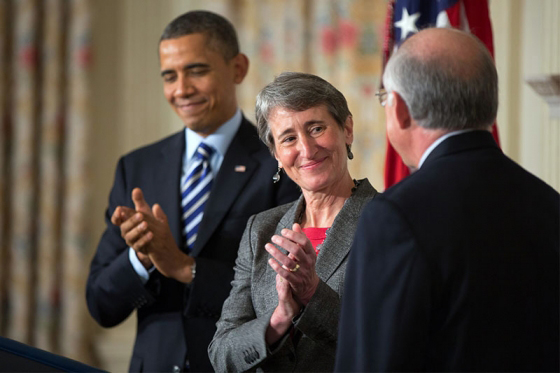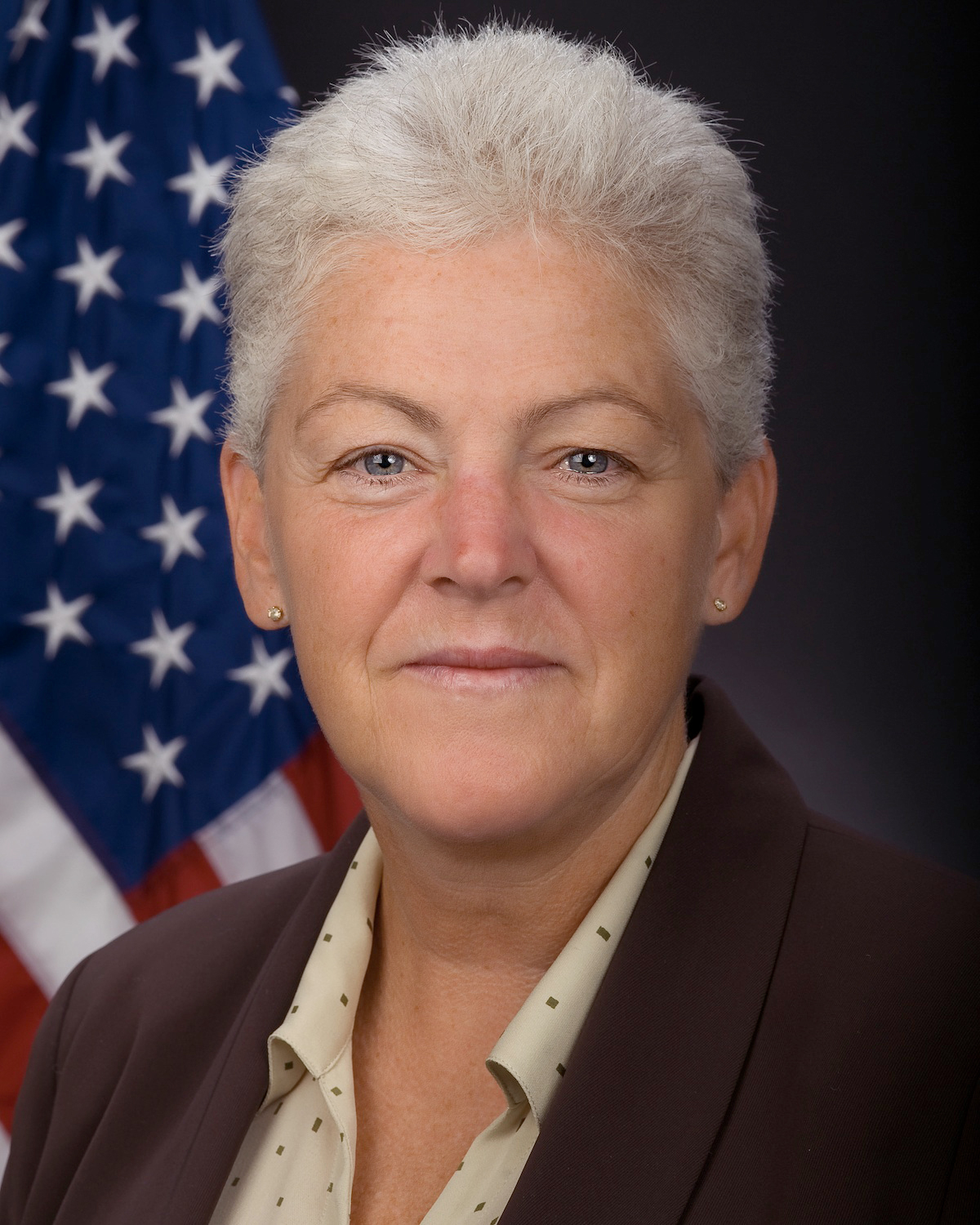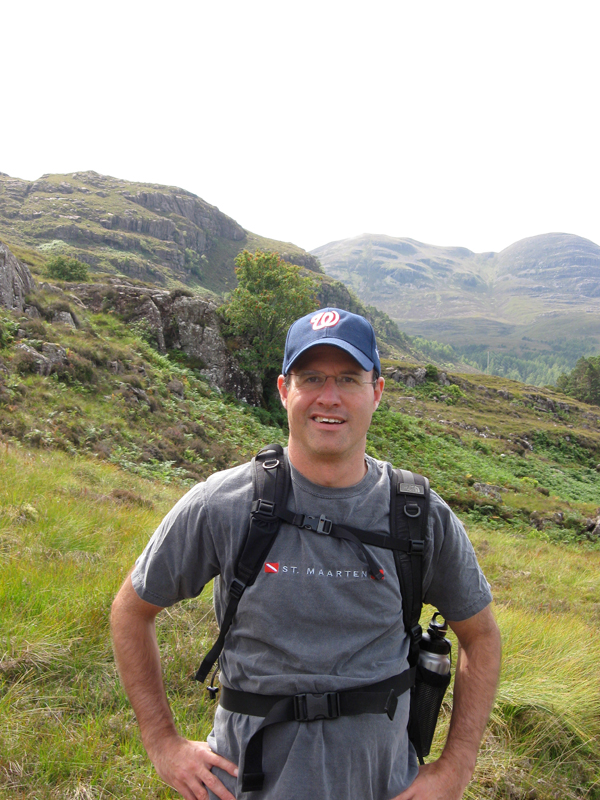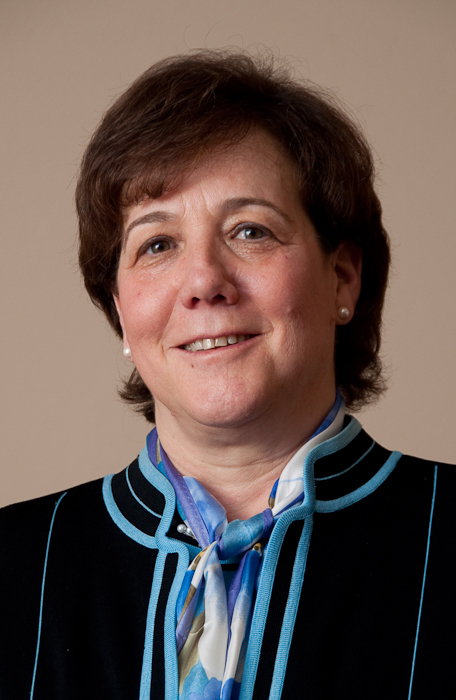The Team to Tackle Climate
Air Date: Week of March 8, 2013

Sally Jewell, Secretary of Interior-designate. President Obama at left, outgoing Interior Secretary Ken Salazar with back to the camera. (Photo: Pete Souza)
President Obama announces three nominations for his Green Team and roster of climate change fighters. Mindy Lubber, former EPA administrator and president of CERES, and Adam Kolton, Director of Advocacy at the National Wildlife Federation, join host Steve Curwood to discuss the picks.
Transcript
CURWOOD: From the Jennifer and Ted Stanley Studios in Boston, this is Living on Earth. I’m Steve Curwood. To help keep his promise to tackle climate change in his second term, President Obama has nominated three key cabinet officers. The President wants EPA air chief Regina McCarthy to lead the Agency, and former Energy Department Undersecretary and MIT physicist Ernest Moniz to be Secretary of Energy. An avid hiker and former petroleum engineer has been tapped to be Secretary of the Interior. She's Sally Jewell, who is now CEO of REI and a vice chair of the National Parks Conservation Association. For some insight, here's Mindy Lubber, a former Regional EPA administrator and president of CERES, and Adam Kolton, Director of Advocacy at the National Wildlife Federation. Welcome to Living on Earth!
LUBBER: Steve, it's always nice to be here. Thanks for having me.
KOLTON: Thanks for having me on, Steve.
CURWOOD: Mindy, let me start with you. You worked with Gina McCarthy when she was an environmental advisor to Massachusetts governors, including Mitt Romney. How do you think she’s going to do as head of the EPA?

EPA Administrator-designate Gina McCarthy (photo: Environmental Protection Agency)
LUBBER: You know, I worked with Gina McCarthy when she worked as a regulator in Massachusetts, when she worked for a Republican governor, when she worked for a Republican governor in Connecticut and when she worked for a Democratic president of the United States. And the reason I mention those partisan titles - not because I think we should be concerned about them - is because it speaks to Gina’s strength. She can work with anyone, Republicans and Democrats, business people and advocates. She is fair. She is smart. She is focused, and she wants to get the job done. And she knows how to play the games that seem to be played in Washington. I can think of no better person for President Obama to be nominating.
CURWOOD: Adam Kolton?
KOLTON: We certainly agree. I mean, this is a very strong pick, and I think together with some of the other nominations, including Senator Kerry at State, this shows the President’s commitment to tackling the climate crisis and continuing work, the foundation laid in the first term. Certainly somebody who has a proven track record of actually tackling climate change with the historic agreement on fuel economy standards that she played an enormous role in helping broker with industry support, with union support, with environmental support. So this is someone who is absolutely qualified and we look forward to her leadership at EPA.
CURWOOD: How tough is she? I mean the EPA is right in the sights of the Republican majority of the House. Industry is very concerned about any kind of climate regulation. She'll be writing the regulations that would presumably rein in existing power plants, a point of great contention. How is she going to be able to handle that pressure?
LUBBER: You know, she is tough, to answer your question, but at the same time she is fair. Let’s look at an example. Gina McCarthy was responsible, of course, with the President of United States behind her, in taking our fuel economy standards from 27 miles per gallon to 54. That's terrific, and all parties stood by it. The key magic there was - and of course there's no magic, but the strength of Gina McCarthy - was finding an outcome that got the job done. It took an enormous amount of emissions out of the air, and did so in a way that was good for the economy because we’re finding that the US-based auto companies profit more from strong fuel economy standards, and it was a proposal that industry, environmentalists, and the labor community liked. How do you get better? I think she can do that with present and future utility facilities.
CURWOOD: Adam, how you think her confirmation process will go there?
KOLTON: Well, we're hopeful. You're not to find a more experienced, more fair-minded person to head the agency. And, obviously, the President...usually there's some acknowledgement that the President gets to put his team on the field. So you know, the fact that she's determined with the President, to address climate crisis, shouldn’t be a reason for people to oppose her, but nevertheless, obviously with the controversy around the EPA, we’re certain there will be those who will oppose her in Congress, and it’s important that everybody who cares about conservation and the environment make sure to make their voices heard in that process and lend their support.
CURWOOD: Briefly, the biggest challenge for Gina McCarthy in this second term of President Obama?
LUBBER: Well, I think Adam just said it. There are all eyes on the Environmental Protection Agency, so there may very well be anger and protestations having nothing to do with Gina and much more to do with the agency. But let's just quickly understand; the EPA,while some seem to be gunning for it, is the very agency that delivers clean air and clean water to all of our families. And it ought not to be a right wing, left wing, right coast, left coast, Republican, Democrat.. We've got to turn the conversation around. The EPA's about making my kids safe and your kids safe. And I think that's what every single one of us want. Gina is the right person to make sure the EPA does that and does it well.
CURWOOD: To move onto one of the other picks, Adam, what do you think about the nomination Sally Jewell as Secretary of Interior?
KOLTON: This is a tremendous pick because, you know, we've...obviously our public lands are not just...there’s a lot of attention oftentimes in the fact that there’s oil and gas drilling and mining and logging and other activities on our public lands. But they’re also just cherished by millions of Americans for hunting and fishing and hiking and biking and kayaking and all those outdoor experiences. And that’s not important to our health and recreation as Americans, but it’s a huge business. I mean, this is a $646 billion dollar industry fueled in terms of economic activity, $49 billion in tax revenue generated. So a pick like someone who has headed REI and understands that linkage to our economy from protecting our natural resources is a very innovative and exciting pick.
CURWOOD: Not to mention somebody who can hike probably longer than the two of us put together right?
KOLTON: [LAUGHS] And climb and do a lot of other things, absolutely.
LUBBER: Certainly better than me!
CURWOOD: But consider this...before she was president of Recreational Equipment International, REI, she worked for Mobil oil. And, of course, a big role of the Interior Department is to regulate oil and gas drilling. How do you think Sally Jewell is going to handle that?
LUBBER: I think her experience in the private sector, both at Mobil, as well as running a major company and building it and making it profitable and delivering jobs is exactly what’s going to make her effective in this role. She knows how to build things. She understands multidisciplinary issues. She understands how to bring people together. I think it's terrific that she worked at Mobil. I may not choose to work there, but she understands the needs of the industry, and she's also proven to understand the needs of wilderness, and what all of us want from the beautiful open space that we love to take advantage of.
CURWOOD: OK, she cares about the outdoors. She's worked in oil. The logic says that it’s awfully difficult to do oil responsibly in the high Arctic. Shell Oil just retreated from there. How do you think Sally Jewell is going to approach regulating Shell and the other companies who want to drill in the Arctic? Adam?
KOLTON: Well, let’s just acknowledge that Shell has pulled back from plans to pursue drilling this summer, which makes sense since they've had some some significant difficulties. I think that we’re hopeful that Sally Jewell and the President will recognize that drilling in the Arctic, outer continental shelf, is a risk that ought not to taken. And that's not the direction the Administration’s been going thus far; but it's absolutely the wrong course. There’s too much at risk as we learned with the BP Deepwater Horizon oil spill. We have yet to really make all the corrections and reforms we need to ensure that spills like that don't happen again, but we’ve not come even close to figuring out how to even deal with the oil spill in extreme weather conditions in the Arctic. We're confident that she'll take the time; she'll have to get under the hood of this issue and really understand it. And again, with her background in the industry she should understand that the industry itself doesn't have the proper solutions to contain or clean up a spill. We don’t have any Coast Guard facilities in the high Arctic. So we're hopeful with the new Secretary of the Interior we can make the case anew.
CURWOOD: Let’s talk about Ernest Moniz. He’s an MIT professor who has been nominated now to be Secretary of Energy. Mindy Lubber, what about Professor Moniz? A number of environmental groups are concerned about his support for nuclear power.

Secretary of Energy-designate Ernest Moniz (photo: MIT )
LUBBER: So let me first say I have got something on my colleague - Adam Colton who’s on the other end of the line - and that is, Adam, we now have two out of three of these who are from Massachusetts, my home town. So it says something. But moving on from where they hail from, I think Ernest Moniz above all else understands that climate change is the problem of our time; that we must deal with and we must mitigate now sooner rather than later. And I think everything else he considers falls under that umbrella. Now we of course share that. We've got to address climate change. The Department of Energy has a very clear role in doing it, as does EPA, frankly as does Interior, so I think Ernest Moniz frames everything within “we’ve got to mitigate the problem of climate change” and then you work down from there. He's a strong supporter, an avid supporter, of energy efficiency, of solar energy, and of wind energy. He does believe that natural gas should be a bridge fuel, and it may very well be the reality we're facing. But I don't think he believes we should have natural gas without dealing with the environmental problems of contamination from fracking or emissions from flaring. I think he knows those things have to be regulated. As it relates to nuclear power, where you started this question, he does believe in nuclear power. I, a bit less so. But I don't think he believes in nuclear power at all costs. I think he believes in starting with renewables and efficiency and that's where it has to begin.
CURWOOD: What does it say that 2 out of 3 of these nominees have been in a number two or number three position in the agencies or departments that they’re now taking over? Mindy?

NWF’s Adam Kolton (photo: Adam Kolton)

Ceres President Mindy Lubber (photo: CERES)
LUBBER: Well, it shows that in the second term of an administration, the real heavy hitters aren't taking these jobs. I couldn't disagree with that more. Knowing how to make progress in getting things done in Washington take some experience in Washington. That's not to say I’d like to see people who have lived their life there and had their careers entirely Washington-based. And Ernie Moniz had both Washington experience and academic experience; Gina McCarthy much experience at the state and even the local level. But you need people who can hit the ground running, who you could give a problem to understand how to move a massive agency. EPA is 18,000 people. How do you bring people together? How you make something happen? And I think there's actually nobody better to do that than people who have been in that number two or number three role and who have had to produce in the past. It takes a long time for a new person in Washington to figure out the rules of the game. And when it comes to climate change we don't have any time to waste.
CURWOOD: So Adam, what do you think here? What kind of team do these appointments add up to? How quick do you think the President is going to be to take on climate change and the other environmental issues during his second term with these folks leading his green team?
KOLTON: Well, we’re optimistic because there’s a lot of work to do. And the President has said some really farsighted things about his determination to address climate change, and that is in the wake of Superstorm Sandy. More and more Americans have woken up to this as a problem. We can’t hit the snooze button on any longer. This is the team to help the President advance that agenda. We can’t waste a minute. And we’re looking forward to a smooth confirmation so we can start moving forward.
CURWOOD: Adam Kolton is the Director of Advocacy at the National Wildlife Federation. Mindy Lubber is President of CERES. Thank you both for joining us.
LUBBER: Thank you, Steve, good to be here.
KOLTON: Thanks, Steve.
Links
Ernest Moniz faculty page at MIT
Living on Earth wants to hear from you!
Living on Earth
62 Calef Highway, Suite 212
Lee, NH 03861
Telephone: 617-287-4121
E-mail: comments@loe.org
Newsletter [Click here]
Donate to Living on Earth!
Living on Earth is an independent media program and relies entirely on contributions from listeners and institutions supporting public service. Please donate now to preserve an independent environmental voice.
NewsletterLiving on Earth offers a weekly delivery of the show's rundown to your mailbox. Sign up for our newsletter today!
 Sailors For The Sea: Be the change you want to sea.
Sailors For The Sea: Be the change you want to sea.
 The Grantham Foundation for the Protection of the Environment: Committed to protecting and improving the health of the global environment.
The Grantham Foundation for the Protection of the Environment: Committed to protecting and improving the health of the global environment.
 Contribute to Living on Earth and receive, as our gift to you, an archival print of one of Mark Seth Lender's extraordinary wildlife photographs. Follow the link to see Mark's current collection of photographs.
Contribute to Living on Earth and receive, as our gift to you, an archival print of one of Mark Seth Lender's extraordinary wildlife photographs. Follow the link to see Mark's current collection of photographs.
 Buy a signed copy of Mark Seth Lender's book Smeagull the Seagull & support Living on Earth
Buy a signed copy of Mark Seth Lender's book Smeagull the Seagull & support Living on Earth

